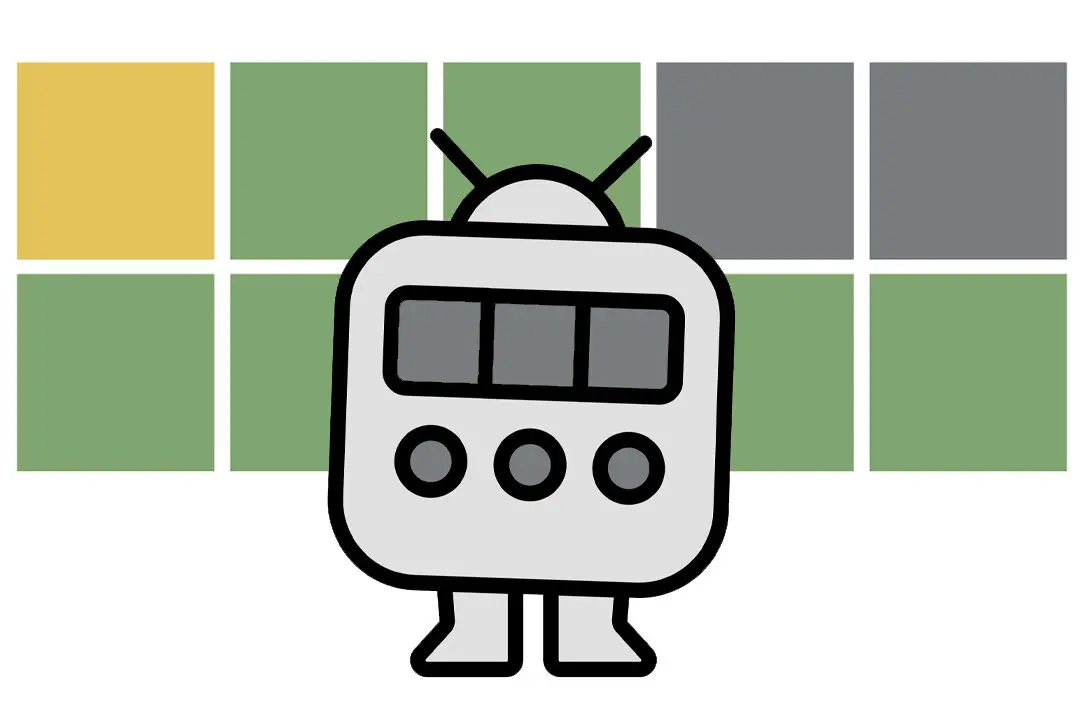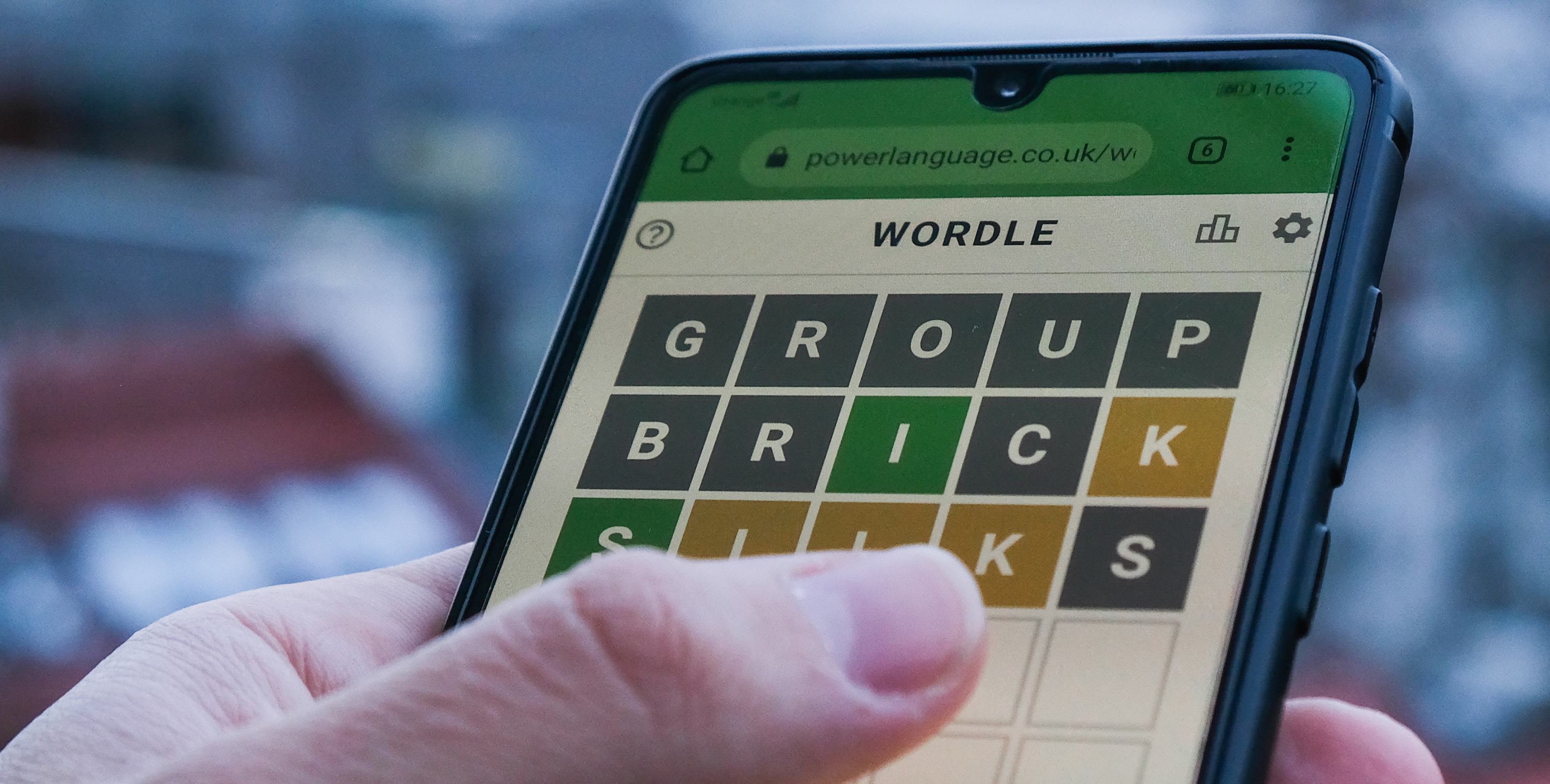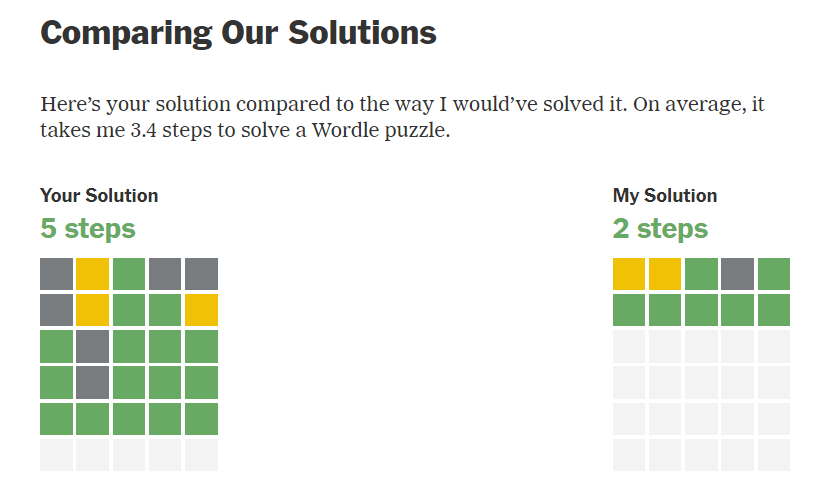The official Wordle companion bot is here to tell you how bad you are at Wordle
Think you're good at Wordle? Wordlebot is here to statistically prove you wrong.

For many of us, Wordle is the way we start our day. We spend a few minutes trying to solve the daily five letter word puzzle, groan a bit about the answer or celebrate when we get it within a few guesses, and maybe compare our results with friends (or even strangers).
But if you're really, really into Wordle and want to take your game to the next level, the New York Times now has a Wordle companion called Wordlebot. After you've played the daily Wordle, you can visit Wordlebot for a granular analysis of your guesses, learn how to make them better next time, see all sorts of statistics… and endure scathing insults through every step of the process.

Today's Wordle: Take a hint
Games like Wordle: More daily puzzles
Wordle tips: Don't let it STUMP you
"WordleBot is a tool that will take your completed Wordle and analyze it for you," says the New York Times, withholding the fact that their bot is also going to mock your efforts and make you cry. "It will give you overall scores for luck and skill on a scale from 0 to 99 and tell you at each turn what, if anything, you could have done differently — if solving Wordles in as few steps as possible is your goal."
That last bit is an important detail. If you really gamify Wordle and make your guesses as optimal as possible, this bot might help you improve. If you enjoy playing by using fun words like PLUNK or SPURT or BONKS and seeing where they take you, Wordlebot is going to skin you alive.
Here's how to use Wordlebot. Once you've completed your daily Wordle, just head to the Wordlebot site (though it looks like you may need a $1 weekly subscription to the Times or at least a free account). As long as you're using the same browser you play Wordle in, Wordlebot will take you through your guesses, one by one, and analyze your choices. And it can get a bit scathing. It'll tell you what it thinks was skill, it won't be shy about pointing our your dumb luck, and even when you've made a good guess it'll suggest a better guess, because it's just so much better at Wordle than you.
"Your guess cut the number of remaining solutions to three," Wordlebot told me today about my second guess. "This is pretty good, but guessing HEMPS here eliminates more solutions than BEARS 76 percent of the time." Oh, does it? Does it, Wordlebot? Well, bears is a better word than hemps, because who ever says "hemps?" Nobody.
"Well done!" it says about my next guess, before quickly taking credit for it. "This is one of the words I would’ve guessed in this situation." Sheesh! You don't always have to make everything about you, Wordlebot.
"You had two solutions to pick from and you chose the wrong one," it scolds when seeing my next guess." This was unlucky, but a smart guess. And you’ve narrowed it down to one possible solution. You should solve the puzzle on your next turn." Or else, it implies.
Keep up to date with the most important stories and the best deals, as picked by the PC Gamer team.
"There was only one possible solution left—and you got it! Well done," it concludes. Well done? On guessing the only possible remaining answer? High praise indeed. Then the bot proceeds to sink the final nails of shame into my self-esteem coffin by showing me just how easily it solved today's puzzle.

Okay, I get it, I suck at Wordle. All hail Wordlebot, knower of words.
There's more analysis and detailed stats at each stage, so if you are really into the Wordle metagame you might get some genuinely useful information from the bot. I think I'll steer clear and maybe go play some other games like Wordle instead for a while. Games that don't have companion bots to point out how much I suck. If you're still interested, there's a highly detailed explanation of how Wordlebot works right here.

Chris started playing PC games in the 1980s, started writing about them in the early 2000s, and (finally) started getting paid to write about them in the late 2000s. Following a few years as a regular freelancer, PC Gamer hired him in 2014, probably so he'd stop emailing them asking for more work. Chris has a love-hate relationship with survival games and an unhealthy fascination with the inner lives of NPCs. He's also a fan of offbeat simulation games, mods, and ignoring storylines in RPGs so he can make up his own.

